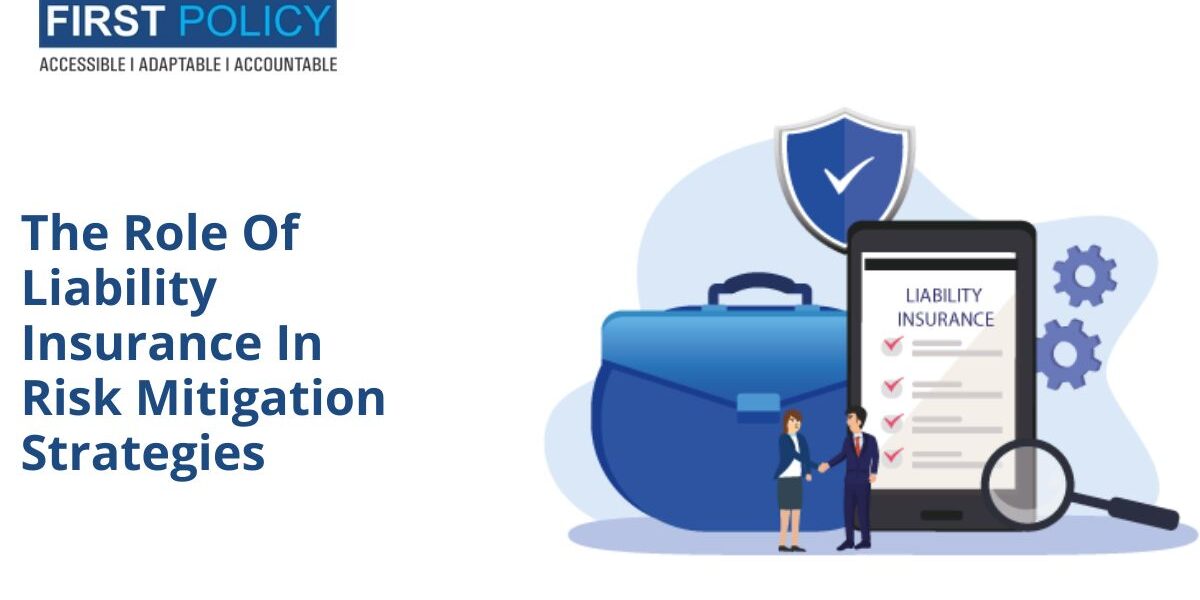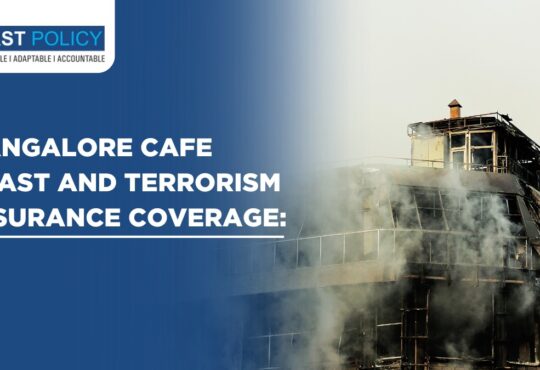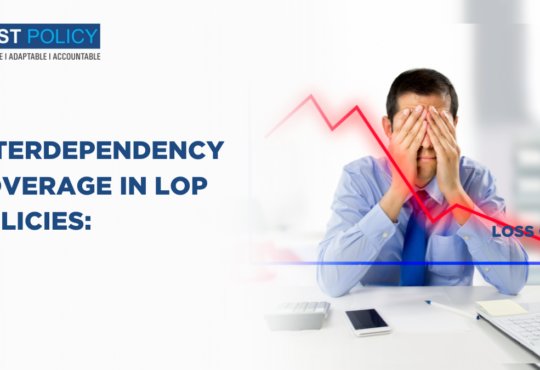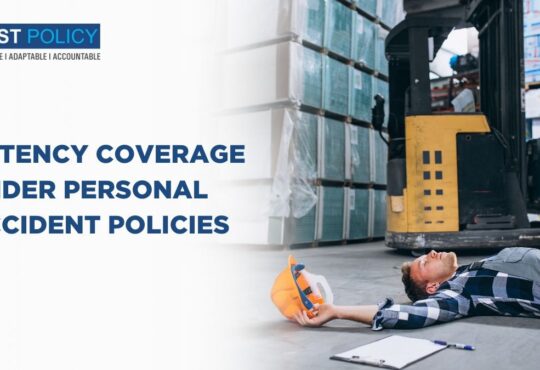
The Role Of Liability Insurance In Risk Mitigation Strategies
Liability insurance plays a vital role in managing risks for businesses of all sizes. In today’s unpredictable world, where unforeseen circumstances can significantly impact a company’s financial well-being, liability insurance acts as a protective shield. This article delves into the multifaceted nature of liability insurance within risk mitigation strategies. It explores various types of liability insurance available to businesses and emphasizes its significance in reducing financial risks. Additionally, it provides best practices for selecting and managing liability coverage.
Types Of Liability Insurance For Businesses
To fully appreciate the role of liability insurance in managing risk, we first need to understand the types of liability insurance for businesses. Different types carry different functions – each type is specially crafted to handle unique possible risks.
General Liability Insurance
Often seen as the foundation of liability coverage, general liability insurance safeguards companies against typical risks like physical harm claims, detriments to property, and personal injury accusations. This assurance is important for business entities interacting with the public since it provides coverage for mishaps and occurrences potentially happening on their grounds.
Professional Liability Insurance
Professional liability insurance, also known as errors and omissions insurance, plays a crucial role for businesses offering professional services. It protects against claims of negligence, errors, or omissions in the services rendered. As such, it becomes indispensable for professions like doctors, lawyers, architects, and consultants.
Product Liability Insurance
Product liability insurance plays a crucial role for companies engaged in manufacturing, distribution, or sales of goods. It protects against claims arising from injuries or property damage caused by their products. Such coverage proves to be a financial saviour in circumstances involving product defects or malfunctions.
Cyber Liability Insurance
In today’s digital world, having cyber liability insurance is crucial. It offers comprehensive protection against data breaches, cyberattacks, and other cyber incidents that can result in financial losses, harm to reputation, and legal ramifications.
Directors And Officers (D&O) Liability Insurance
D&O liability insurance safeguards the personal assets of directors and officers within a company. It provides coverage for legal expenses and settlements that may arise from claims related to mismanagement, breaches of fiduciary duty, or other wrongful acts committed in their respective roles.
Workman Compensation
Workers’ Compensation Insurance offers financial protection to employees and employers. It covers medical experiences and lost wages caused by work-related injuries and illnesses while emphasizing workplace safety and adherence to legal requirements.
Crime Insurance
Crime insurance offers financial protection against losses caused by criminal activities like theft, embezzlement, fraud, or cybercrime. It serves as a safety net for businesses and individuals, securing their assets and aiding in recovery from unlawful acts.
Importance Of Liability Insurance In Risk Mitigation
Liability insurance is a cornerstone of any business’s risk management strategy. Here are several reasons highlighting the importance of liability insurance in risk mitigation:
Legal Compliance
Liability insurance is often required by law. In many jurisdictions, businesses are obligated to obtain specific types of liability coverage, such as workers’ compensation insurance in manufacturing companies, Public Liability Act Insurance in hazardous chemicals companies or thirdparty liability in motor insurance. Failure to comply with these regulations can result in fines or legal consequences.
Financial Protection
Liability insurance is a financial safeguard, ensuring businesses don’t have to bear the full brunt of legal costs or settlement amounts. A lawsuit or liability claim could bankrupt a company without adequate coverage.
Reputation Management
Public relations and reputation are vital assets for businesses. Liability insurance can help manage and mitigate the damage to a company’s reputation that may result from legal disputes or adverse events.
Risk Mitigation
Businesses can focus on their core operations by transferring the financial risks associated with liability claims to an insurance provider. This allows them to effectively manage risks without the constant fear of a catastrophic event derailing their operations.
Customer And Stakeholder Trust
Liability insurance can instil trust among customers, investors, and other stakeholders. It demonstrates that a business is proactive in addressing potential risks and is committed to protecting the interests of all parties involved.
Choosing The Right Liability Insurance Coverage
Choosing the right liability insurance coverage is a crucial decision for businesses. Here are some considerations to help in the decision-making process:
Assess Your Risks
The first step is to identify the specific risks your business faces. Understanding your vulnerabilities will help you determine which types of liability insurance are most relevant. Conduct a thorough risk assessment to pinpoint potential liabilities.
Consult With An Insurance Agent
Insurance agents are invaluable resources for businesses seeking appropriate coverage. They can provide expert guidance and help tailor coverage to your specific needs. Seek out an agent with experience in your industry for the best advice.
Understand Policy Limits
Each liability insurance policy comes with coverage limits, indicating the maximum amount the insurer will pay in the event of a claim. It’s crucial to align these limits with your potential liabilities. Underinsuring can leave you exposed, while overinsuring can be costly and unnecessary.
Review Exclusions
Liability insurance policies often contain exclusions, specific scenarios, or circumstances not covered by the policy. Thoroughly review these exclusions to understand the limitations of your coverage.
Consider Industry-Specific Needs
Certain industries may require specialized liability insurance. For instance, a medical practice may need medical malpractice insurance, while a restaurant might need liquor liability coverage. Industry-specific policies address the unique risks associated with particular fields.
How Liability Insurance Reduces Financial Risks
The primary purpose of liability insurance is to mitigate financial risks. Let’s explore how liability insurance reduces financial risks:
Legal Defense Costs
Liability claims can lead to protracted legal battles, incurring significant legal fees. Liability insurance covers the cost of legal defence, sparing businesses from the burden of hiring attorneys and covering litigation expenses.
Settlements And Judgments
In the event of a liability claim, insurance policies often cover settlements or judgments awarded to the claimant. This financial support ensures businesses can fulfil their legal obligations without draining resources.
Property Damage And Medical Expenses
Liability insurance also covers property damage and medical expenses related to accidents or injuries. This can be especially critical for businesses facing claims due to accidents on their premises or injuries caused by their products or services.
Risk Diversification
Businesses effectively diversify their risk by transferring the financial risk to an insurance company. Instead of shouldering the full financial burden, they share it with the insurer, which is typically more equipped to handle such risks.
Business Continuity
Liability insurance helps maintain business continuity. Instead of facing bankruptcy or severe financial setbacks, businesses can carry on their operations even in the face of unexpected liability claims.
Liability Insurance Best Practices For Businesses
Here are the liability insurance best practices for businesses:
Regular Policy Reviews
Business owners should regularly review their liability insurance policies to ensure that they meet the specific needs of their business and comply with any regulatory changes. Adjusting coverage as necessary is crucial to effectively address evolving risks.
Risk Management Programs
A robust risk management program should be implemented to proactively diminish potential liabilities. This program may encompass employee training, safety protocols, and documentation procedures aimed at minimizing risks.
Claims Management
Efficiently managing and reporting claims to your insurance provider is crucial. Timely reporting ensures that the insurance company can promptly assess and address any situation that arises.
Seek Legal Counsel
To ensure you navigate liability claims and fulfil your legal obligations, it is essential to engage the services of experienced legal counsel specializing in liability matters. These professionals can provide expert guidance tailored to your specific situation, offering valuable support throughout.
Conclusion
Liability insurance serves as a vital foundation for responsible business operations. It enables companies to meet legal obligations and safeguards them against the financial repercussions of liability claims.
By understanding the available types of liability insurance, recognizing its significance, and adopting effective risk management practices, businesses can drastically reduce their exposure to risk and ensure enduring financial stability. The careful selection of appropriate liability coverage and ongoing vigilance in managing risks lay the groundwork for a prosperous future in any business endeavor.





